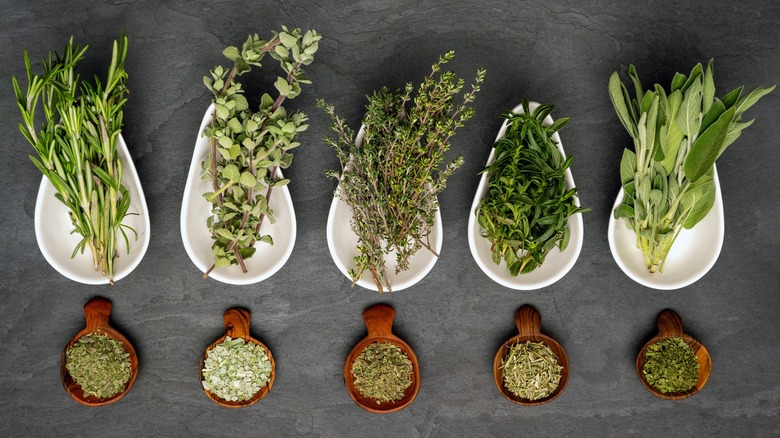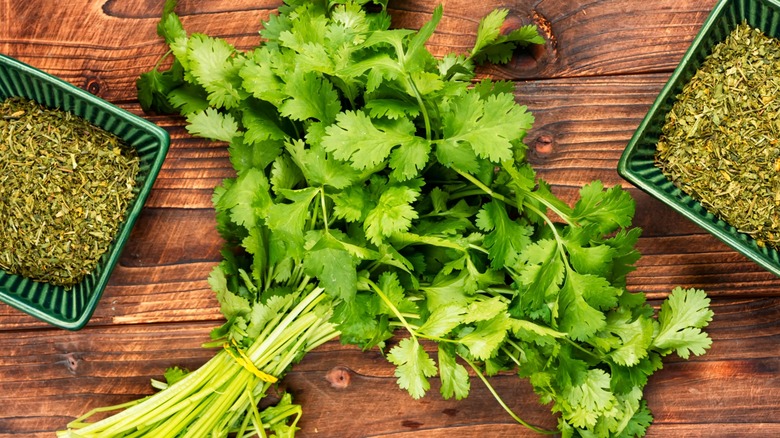The Ratio To Use When Substituting Dried Herbs For Fresh Ones
Aromatic herbs like Mediterranean basil and the fresh thyme Giada De Laurentiis uses to upgrade lemon bars add that wow factor that sets good food apart from an elevated culinary showstopper. But sometimes you just don't have them around. It's easy to assume that all those handy-dandy dried versions sitting in your spice rack could do the same job in a pinch, but not so fast. While it appears to be a simple swap, substituting dried herbs for fresh isn't as straightforward as it may seem.
We asked two executive chefs to tell us how to use the two interchangeably. One said he steers clear of manipulating recipes that way because of the stark difference between them. Arnold Myint, executive chef and owner of International Market 2.0, said, "I don't think I've ever subbed dry with fresh." However, Derek Piva, executive chef at Tu Tu' Tun, is a bit more flexible when it comes to swapping dried herbs for raw. "As a general rule, when substituting dried herbs for fresh, use ⅓ the amount."
Myint's reasoning stems from how he conceptualizes his cuisine. "My use of dry herbs is very intentional, and I don't feel like recipes that interchange the two options are even comparable." That doesn't mean he never uses fresh. "I have specific recipes that use each style." Piva elaborated on why using a ⅓ ratio is crucial when he replaces dry with fresh. "Dried herbs are more concentrated," he said. "But not all herbs translate well."
Are herbs better fresh or dried?
Myint conceded that some herbs (like cilantro, which Julia Child loathed and Ina Garten never used in her recipes) should only be used in fresh form. "I've never considered dried cilantro because I feel like access to fresh is abundant and inexpensive." Piva agreed that some varieties don't perform as well in dried form. "Delicate herbs like basil, chives, or parsley should always be fresh," Piva said. "Their essential oils and brightness just don't survive the drying process."
Piva went on to explain that if you can't find good aromatics in raw form, there is a better substitute than dried. "If you can't get fresh, frozen or preserved-in-oil are often better options than dried for soft herbs," he said. "They hold flavor and texture much more effectively."
"On the flip side," Piva noted, "herbs like oregano or thyme can work beautifully dried, especially in long-cooked dishes like stews or braises." Myint concurred with the use of dehydrated thyme. "Thyme is a fickle herb when fresh, and fresh rosemary tends to overpower. The dried versions of both are easier to control when it comes to standardizing a recipe and consistent flavor." Understanding how aromatics will affect the overall profile of a dish is the key. Although Piva's ⅓ rule works in many cases, substituting dry herbs for fresh (or the other way around) can occasionally negatively impact the flavor. Just make sure you know what you're doing.

